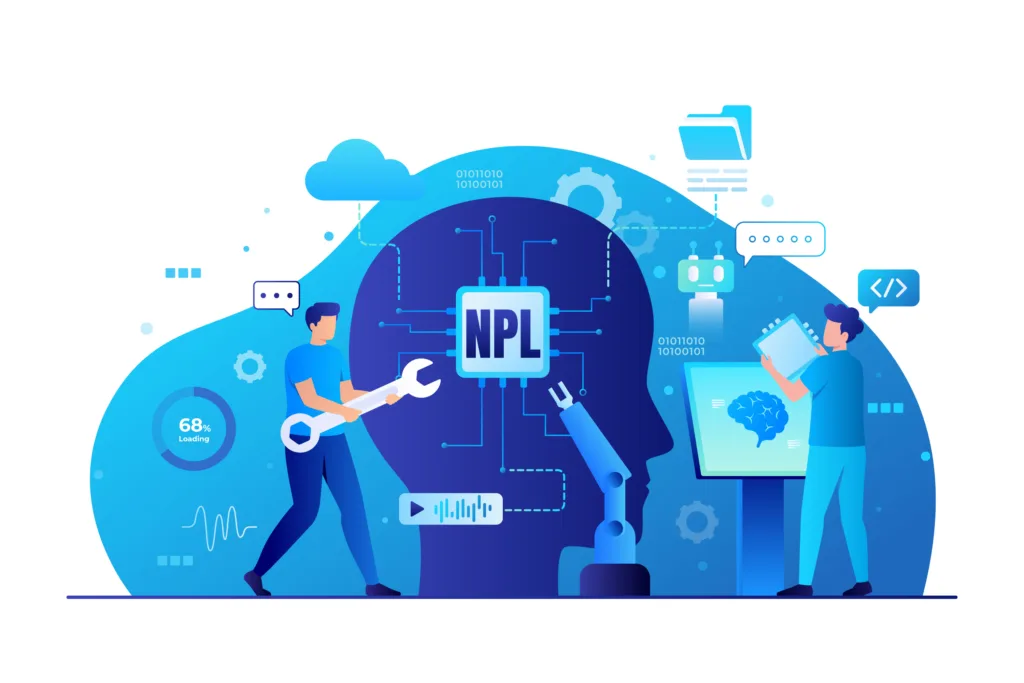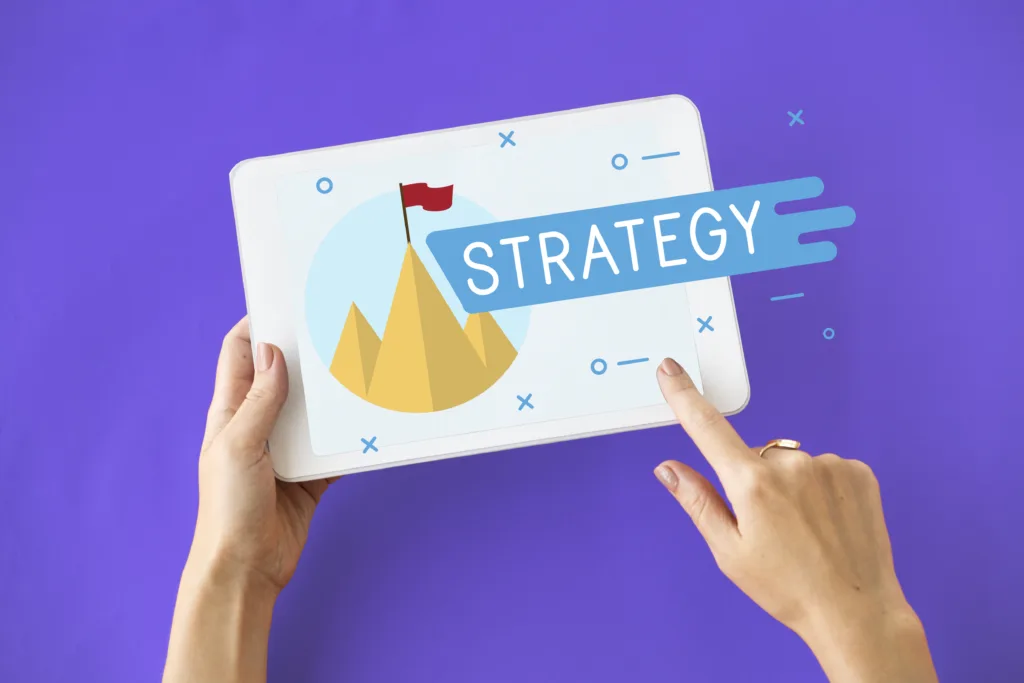
In our fast-paced digital landscape, the prominence of artificial intelligence (AI) in the realm of marketing has surged to new heights. AI marketing strategies leverage cutting-edge AI technologies to fuel tailored customer interactions, predictive data analysis, and the streamlined automation of marketing tasks. The integration of AI into marketing plans yields a plethora of advantages for businesses, encompassing heightened customer engagement, heightened operational efficiency, and a more robust return on investment (ROI).
Table of contents
- What is AI in Marketing?
- Benefits of AI Marketing
- Application Areas of AI in Marketing
- AI Tools and Technologies in Marketing
- Preparing for an AI Marketing Strategy
- Developing an AI Marketing Strategy Framework
- Measuring and Analyzing AI Marketing Performance
- Challenges and Ethical Considerations in AI Marketing
- Future Trends and Innovations in AI Marketing
- Conclusion
What is AI in Marketing?
Artificial intelligence has transformed the landscape of business operations, and marketing is no different. AI marketing encompasses the application of machine learning algorithms and predictive analytics to streamline and enhance diverse marketing functions. Through the integration of AI, enterprises can attain invaluable understandings of customer behavior, tailor marketing endeavors, and elevate overall customer satisfaction.
AI-driven marketing tools possess the capacity to swiftly process substantial volumes of data, empowering businesses to formulate decisions grounded in data-driven insights and customize their marketing strategies accordingly. Whether it’s scrutinizing customer inclinations or forecasting upcoming trends, AI equips marketers with a competitive advantage in the swiftly evolving digital realm of today.
Benefits of AI Marketing
AI has brought about a revolution in marketing, offering a plethora of advantages to businesses and marketers. Here are some key benefits of employing AI in marketing:
- Enhanced Customer Insight: Leveraging AI algorithms, organizations can delve into extensive customer data, yielding profound insights into customer behavior, preferences, and requirements. This enriched understanding empowers marketers to craft marketing campaigns that are personalized and precisely targeted, effectively resonating with their audience.
- Streamlined Campaigns: Utilizing AI, marketing campaigns can be effortlessly fine-tuned as they continuously assess live data and adapt key elements like ad placements, target demographics, and messaging. This not only conserves valuable time and resources but also guarantees the utmost efficiency in your marketing endeavors.
- Enhanced Personalization: AI enables businesses to deliver personalized experiences at scale. By leveraging customer data, AI algorithms can create highly tailored content and recommendations that cater to each individual’s preferences, increasing engagement and conversion rates.
- Improved Efficiency: AI can automate repetitive and time-consuming tasks, freeing up valuable time for marketers to focus on more strategic initiatives. From automated email campaigns to chatbots, AI-powered tools can handle routine tasks, allowing marketers to allocate their time and energy to higher-value activities.
- Real-time Insights: Utilizing AI-driven analytic tools empowers businesses with immediate insights into campaign effectiveness, customer interactions, and prevailing market trends. This enables marketers to swiftly implement data-backed choices, ensuring their strategies remain current and in sync with market requirements.
Application Areas of AI in Marketing
1. Personalized Customer Experience
AI plays a pivotal role in modern marketing by revolutionizing the way businesses offer personalized customer experiences. With the power of AI tools, marketers can collect and scrutinize customer data, enabling them to customize their products, suggestions, and communication to align perfectly with each person’s unique preferences and actions.
2. Predictive Analytics
AI-driven predictive analytics empowers marketers to anticipate forthcoming trends, anticipate customer actions, and grasp market dynamics. Through the examination of extensive datasets, machine learning algorithms can discern trends, make forecasts, and furnish invaluable insights to steer marketing strategies and decision-making.
3. Chatbots and Virtual Assistants
AI-driven chatbots and virtual assistants have revolutionized customer service and engagement. These intelligent systems leverage natural language processing and machine learning algorithms to interact with customers, provide personalized recommendations, and address their queries promptly.
4. Content Curation and Recommendation Engines
AI-based content curation and recommendation engines help marketers deliver relevant and engaging content to their target audience. By analyzing user behavior and preferences, these systems can suggest personalized content, boosting user engagement and driving conversions.
5. Automation of Marketing Processes
AI automation streamlines marketing processes by automating repetitive tasks. From email marketing campaigns to social media scheduling, AI technologies can handle these tasks efficiently, saving time and resources while ensuring consistent delivery.
AI Tools and Technologies in Marketing
AI marketing strategies rely on various tools and technologies to achieve their desired outcomes.
1. Machine Learning (ML) Algorithms
Machine learning algorithms empower computers to acquire knowledge from data and subsequently make predictions or execute actions without the need for explicit programming. These algorithms possess the capability to scrutinize intricate datasets, discern patterns, enhance marketing strategies, and customize customer interactions.
2. Natural Language Processing (NLP)

NLP allows AI systems to understand and generate human language. It’s used in sentiment analysis, content generation, and chatbots to understand and respond to customer inquiries and feedback.
3. Neural Networks and Deep Learning
Neural networks simulate the human brain’s functioning, enabling deep learning algorithms to process vast amounts of data quickly. These networks are used for advanced tasks such as image recognition, natural language understanding, and predictive analytics in marketing.
4. Data Analytics and Predictive Modeling
Data analytics tools help marketers extract insights from complex datasets, allowing them to understand customer behavior, identify trends, and make data-driven decisions. Predictive modeling leverages historical data and AI algorithms to forecast future outcomes, optimizing marketing strategies.
Preparing for an AI Marketing Strategy
1. Building the Foundation
Before implementing an AI marketing strategy, it is vital to assess the organization’s readiness for AI adoption. This entails evaluating the infrastructure, skillset, and cultural readiness to embrace AI technologies. Setting clear objectives and goals for the AI marketing strategy is equally crucial to ensure alignment with overall business objectives.
2. Technology and Infrastructure Requirements
Selecting the right AI marketing tools and platforms is essential to support an effective strategy. Marketers must consider factors such as compatibility, scalability, and ease of integration with existing systems. Additionally, data privacy and security considerations should be addressed to safeguard customer data throughout the AI-driven marketing processes.
3. Data Management and Integration
Effective data management and integration are imperative for an AI-driven marketing strategy. Marketers need to identify relevant data sources, structure and cleanse the data, and integrate it across platforms for comprehensive analysis. By having accurate and accessible data, marketers can leverage AI to derive meaningful insights and fuel their marketing campaigns.
4. Technology and Infrastructure Requirements
Selecting the right AI marketing tools and platforms is essential to support an effective strategy. Marketers must consider factors such as compatibility, scalability, and ease of integration with existing systems. Additionally, data privacy and security considerations should be addressed to safeguard customer data throughout the AI-driven marketing processes.
Developing an AI Marketing Strategy Framework

Now that we understand the potential and benefits of AI marketing, let’s dive into the essential steps for designing an effective AI marketing strategy.
1. Identifying Target Audience and Segmentation
AI technologies play a vital role in audience profiling and segmentation. By leveraging AI algorithms, marketers can gain deeper insights into their target audience’s characteristics, preferences, and behavior. This enables them to create personalized marketing campaigns that resonate with each segment, driving higher engagement and conversions.
2. AI-powered Content Marketing
AI empowers marketers to create personalized content at scale. By analyzing user data and preferences, AI algorithms can generate tailored content, ensuring it aligns with search engine optimization (SEO) requirements. Furthermore, AI technologies can also assist in distributing and promoting content effectively across various channels.
3. Dynamic Pricing and Recommendation Systems
AI’s predictive capabilities enable businesses to implement dynamic pricing strategies that optimize revenue and customer satisfaction. By analyzing market trends, customer behavior, and competitor prices, AI algorithms can dynamically adjust prices to maximize profitability. Additionally, AI-driven recommendation systems enhance cross-selling and upselling opportunities, increasing customer loyalty and revenue.
4. AI-driven Customer Relationship Management (CRM)
AI technologies offer immense opportunities for enhancing customer relationship management. By leveraging AI in CRM, marketers can deliver personalized customer experiences, automate customer support tasks, and generate actionable insights for improved engagement and retention strategies.
5. AI-powered Marketing Automation
Marketing automation powered by AI enhances efficiency and effectiveness by automating repetitive tasks. By utilizing AI algorithms, marketers can streamline campaign management, lead nurturing, and customer segmentation. This enables them to create targeted and efficient marketing campaigns that deliver better results.
Measuring and Analyzing AI Marketing Performance
1. Defining Key Performance Indicators (KPIs)
Selecting relevant KPIs is crucial to measuring the effectiveness of an AI marketing strategy. KPIs must align with the defined objectives and goals, providing meaningful insights into the impact of AI-driven initiatives. By tracking and analyzing the right KPIs, marketers can optimize their strategies and allocate resources effectively.
2. AI Analytics and Insights
AI analytics plays a significant role in extracting valuable insights from data. AI algorithms can analyze vast amounts of data in real time, identifying trends, patterns, and anomalies that humans might overlook. Interpreting these AI-generated analytics enables marketers to make informed decisions, improve campaign effectiveness, and enhance customer experiences.
3. Optimizing and Iterating AI Marketing Strategy
An AI marketing strategy should be a continuous process of improvement and optimization. A/B testing and experimentation allow marketers to fine-tune AI models and algorithms, iteratively enhancing performance and achieving better results over time. By leveraging AI for optimization, marketers can stay ahead of the competition and adapt to evolving customer preferences.
Challenges and Ethical Considerations in AI Marketing
1. Addressing Data Privacy and Security Concerns
As AI-driven marketing relies heavily on customer data, it is crucial to address data privacy and security concerns. Marketers must implement robust data protection measures, comply with applicable regulations, and ensure transparency in data usage to foster trust with customers.
2. Avoiding Bias and Discrimination in AI Algorithms
Bias in AI algorithms can inadvertently perpetuate discrimination and inequalities. It is essential for marketers to identify and mitigate biases to ensure fair, inclusive, and unbiased AI-driven marketing strategies. This includes diverse training data and thorough testing to eliminate unintended discriminatory outcomes.
Future Trends and Innovations in AI Marketing
1. Voice and Visual Search Revolution
The increasing popularity of voice-activated devices, such as smart speakers and virtual assistants, presents new opportunities for marketers. Harnessing the power of AI, businesses can optimize their marketing strategies to cater to voice search queries effectively. Additionally, AI-driven visual search technologies enable marketers to leverage visuals as search queries, enhancing user experiences and driving engagement.
2. AI-generated Content Creation
As AI technologies continue to advance, they hold immense potential for content generation. AI algorithms can create content by analyzing existing data and generating personalized and engaging materials at scale. However, potential challenges related to plagiarism, authenticity, and maintaining human creativity should be addressed.
Recommended Articles
- How to Craft a 360° Digital Marketing Strategy in 2026
- LLMs Are the New Search Bar — Here’s Why That Matters
- From Multichannel to Omnichannel: How Top Brands Stay Ahead
Conclusion
Designing an AI marketing strategy involves understanding the components of AI in marketing and its application areas. It requires thorough preparation, including building a robust foundation, managing and integrating data, and ensuring the appropriate technology and infrastructure.
Developing a framework that encompasses target audience identification, AI-powered content marketing, dynamic pricing, CRM, and marketing automation is essential. Measuring performance, addressing ethical considerations, and staying updated with future trends complete the journey of designing a successful AI marketing strategy.
Don’t miss out on the transformative potential that AI holds for your business. Get in touch with Hunters Digital today and revolutionize your marketing efforts for a competitive edge in the digital landscape! Contact us for a free consultation at +65 8793 7868 or or leave a message.

